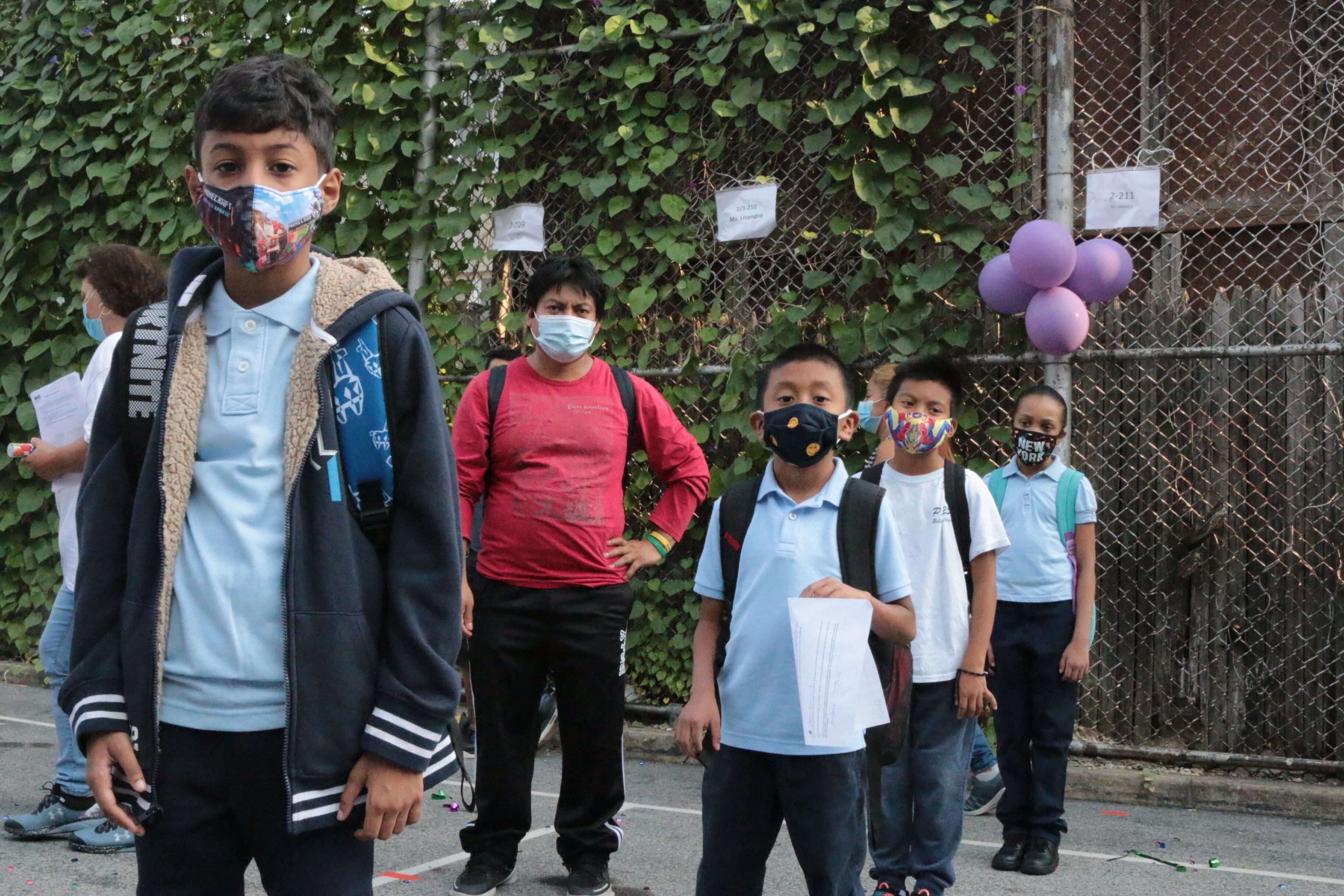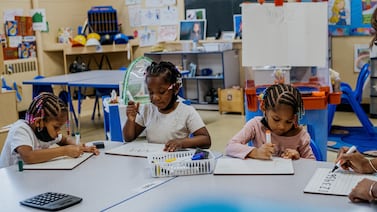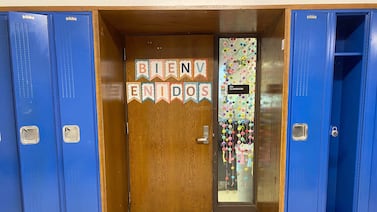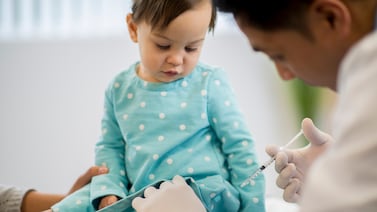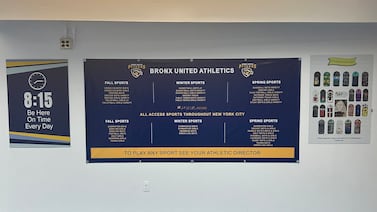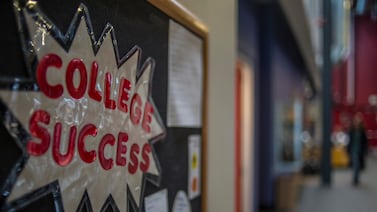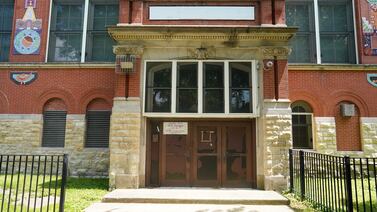New York City is shortening required isolation periods for students who test positive for the coronavirus from 10 days to five in many cases, education department officials said Tuesday, a change that will more closely mirror the current practice for staff.
Students in grades K-12 who test positive may return on day six after five days of isolation as long as they have been fever-free for 24 hours without the use of medication, their symptoms are improving, and they wear a “well-fitting” mask. A negative test is not required to return.
That is a significant adjustment to the current practice, which is for students who test positive to stay at home for 10 days. The change brings the policy for students in line with school staff, who are also allowed to return to school buildings after five days of isolation. The new rules will take effect on Jan. 31. City officials said it reflects federal and state guidance and other districts, including Chicago, have moved to adopt similar rules.
The updates to quarantine and isolation rules come as New York City has been dealing with a surge of the more-contagious omicron variant. Infections are falling, yet remain high, and are still causing significant disruption to schools. On Tuesday, 1,445 students and 307 staff reported positive COVID tests, city data show. Almost 166,000 positive tests have been reported so far this school year.
The changes announced Tuesday will also affect preschool students, who have generally faced longer isolation periods than their older peers. Preschoolers who test positive must still stay home for a full 10 days. But prekindergarten children who are exposed in their classroom will be allowed to return to school after five days instead of 10. To return, they must not have symptoms and must either test negative on a PCR test on the fifth day of their isolation or on two at-home rapid tests taken on day four and five of their quarantine.
The city is also shortening the quarantine periods for K-12 students who are not fully vaccinated and are exposed to someone who tested positive for the coronavirus outside of school. In that instance, students may quarantine for five days instead of 10 and must return to school wearing a well-fitting mask. The changes were first reported by NY1.
City officials said for the first time they will provide adult-sized KN95 masks to students who can tolerate wearing them or “three-ply surgical masks” for those who can’t. Officials did not immediately say whether those masks would be available to any student who requests them or would only go to those returning from a quarantine.
The current policy does not require students in grades K-12, regardless of vaccination status, to stay home if they are exposed to someone who tested positive in school. Students in those situations are sent home with two rapid tests; the first one should be taken on the day a student receives them and the second should be taken five days later. If both tests are negative, the student can continue attending school.
That protocol is not affected by the policy changes announced on Tuesday.


